- Sun Mobility
- Helios Climate
- Private Infrastructure Development Group
- Bosch
- Maini Group
- Indian Oil Corporation
- Vitol
- Vivo Energy
- Tavraj Banga
- Chetan Maini
Helios Climate Backs Sun Mobility For Establishing Battery Swapping Network In Africa
- By MT Bureau
- July 29, 2025
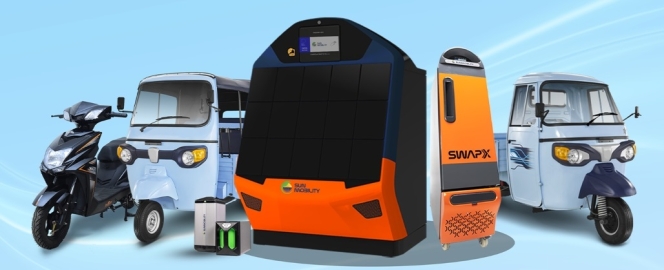
Helios Climate (HC), an investment platform, has partnered with the Private Infrastructure Development Group (PIDG) to invest in Bengaluru-headquartered battery swapping solutions provider for electric vehicles – Sun Mobility.
This investment contributes to the approximately USD 135 million raised by Sun Mobility over the past year and will support the launch towards establishing battery swapping network in Africa along with contributing to Sun Mobility's growth in India.
Established in 2017 by Sun Group and the Maini Group, Sun Mobility operates over 900 battery swapping stations, powering a fleet of over 50,000 vehicles. Its battery technology, developed and produced in India, works across two-wheelers, three-wheelers, four-wheelers and heavy electric vehicles through various global OEM partners. Indian Oil Corporation, Vitol (parent of Vivo Energy) and Bosch are among Sun Mobility’s early investors.
Tavraj Banga, Partner & Co-Head, Helios Climate, said, “Sun Mobility is a global category leader with a differentiated and proven solution for the e-mobility space. Their platform’s interoperability spans multiple OEMs and vehicle types, allowing electrification at scale. Coupled with the economic and decarbonisation benefits, it is an ideal solution for emerging markets. We’re proud to support their entry into Africa and work alongside their key partners to deliver scalable, affordable and climate-resilient mobility solutions on the continent. We look forward to working alongside the company and its shareholders, including Vitol, Indian Oil and Bosch, to realise this potential.”
Chetan Maini, Co-Founder & Chairman, SUN Mobility, said, “We’ve built a modular, fast, and scalable battery swapping ecosystem that adapts to real-world mobility needs. With over 1.4 million monthly swaps in India and growing global interest, we’re excited to extend our proven model to emerging markets like Africa. The region’s rapid urbanisation, reliance on two and three-wheelers and need for robust HEV solutions position it perfectly to leapfrog into clean mobility.”
As per estimates, two-wheelers and three-wheelers contribute a significant portion of CO2 emissions in Africa, with the market forecasted to exceed 1.9 million vehicles annually by 2030. This presents a significant growth opportunity for clean, cost-effective electrification. This investment will support the growth of the e-mobility supply chain in Africa and South-East Asia (batteries and quick interchange stations).
BYD Extends Blade Battery Warranty To 8 Years Or 250,000km
- By MT Bureau
- January 16, 2026
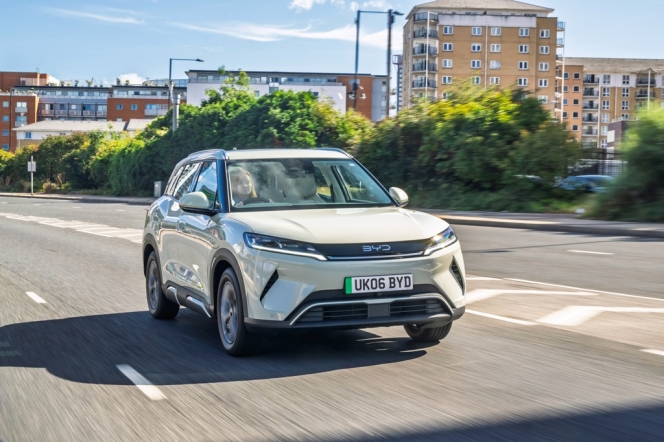
BYD has updated its warranty terms for the Blade Battery in Europe, increasing the mileage limit to 250,000km while maintaining the 8-year duration. The extension applies to both battery electric vehicles (BEVs) and Super Hybrids and includes a guaranteed State of Health (SOH) of at least 70 percent. This change is retroactive, covering existing owners alongside new customers.
The Blade Battery utilises lithium iron phosphate (LFP) chemistry, which avoids the use of nickel and cobalt. Its design allows cells to act as structural elements, increasing the vehicle's torsional rigidity. This configuration reduces the volume occupied by the battery by 50 percent compared to traditional designs, intended to optimise interior space.
The battery has undergone testing, including nail penetration, where surface temperatures remained below 60deg Celsius. It has also been subjected to overcharge tests, oven tests at 300deg Celsius, and crush evaluations. According to BYD, the battery can exceed 3,000 charge and discharge cycles, indicating a service life of approximately 1.2 million kilometres.
Current models utilising this technology include the BYD SEAL, which reports a range of 570km on the combined cycle and the BYD SEALION 7, capable of DC charging from 30 percent to 80 percent in 18 minutes at a power of 230 kW.
Under the new terms, the specific battery cover sits alongside the standard vehicle warranty of six years or 150,000km. The electric drive unit remains covered for eight years or 150,000km, while the anti-perforation warranty continues at 12 years with unlimited mileage. The extension is designed to address user confidence regarding the longevity of energy storage systems in the European market.
- Suzuki R&D Center India
- SRDI
- Suzuki Motor Corporation
- Suzuki e-Micromobility Innovation Lab for Ecosystem
- SMILE
- International Automobile Center of Excellence
- iACE
- VmeM
- Versatile micro e-Mobility
- Katsuhiro Kato
Suzuki Establishes e-Micromobility Innovation Lab In Gujarat
- By MT Bureau
- January 16, 2026

Suzuki R&D Center India (SRDI), a subsidiary of Suzuki Motor Corporation, has launched the Suzuki e-Micromobility Innovation Lab for Ecosystem (SMILE). Located within the International Automobile Center of Excellence (iACE) in Gandhinagar, Gujarat, the facility functions as a platform to develop Versatile micro e-Mobility (VmeM) solutions.
The laboratory connects technology from Japan with ideas from Indian startups and component manufacturers. The objective is to design mobility systems from a customer perspective and strengthen co-creation within the Indian ecosystem. The VmeM platform, previously announced in Japan as MITRA, was showcased during the Vibrant Gujarat event in Rajkot on 11-12 January before the opening ceremony on 13 January.
SMILE operates within iACE, an institution founded in 2015 by the Government of Gujarat and Maruti Suzuki India. The centre focuses on training and skill development, having provided education to over 10,000 individuals in automotive engineering and mobility systems. The establishment of SMILE follows a memorandum of understanding signed between iACE and SRDI in December 2024.
The lab intends to integrate vehicle manufacturing with technology from the startup sector to address infrastructure needs. Target applications include warehousing, air cargo, manufacturing plants, agriculture, and municipal services.
Katsuhiro Kato, Director and Executive Vice-President, Suzuki Motor Corporation, said, “We are pleased to see the VmeM, designed and developed by Suzuki, introduced in India through Suzuki R&D Center India. The VmeM platform represents Suzuki’s commitment to evolving future mobility. With the launch of SMILE at iACE, we will work closely with Indian industry, startups and government stakeholders to drive co-creation on valuable mobility solutions that support growth and sustainability. We also aim to serve the role as a key base for the global deployment of the VmeM platform by promoting continuous technological development.”
The initiative positions Gujarat as a base for the global deployment of the VmeM platform through ongoing technological development and stakeholder collaboration.
Steelbird Fighter Helmet Range With Base X Tech Launched At INR 5,999
- By MT Bureau
- January 16, 2026
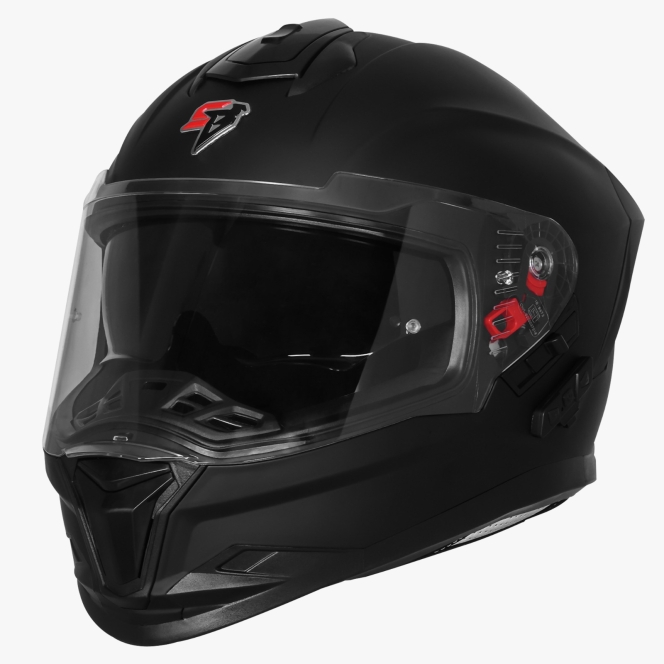
Steelbird Hi-Tech India, one of the largest helmet and two-wheeler accessories brands, has launched Base X, a smart riding technology integrated into the Steelbird Fighter helmet range. The system is designed to provide connectivity and control for riders while maintaining a focus on safety standards.
The Base X system features a magnetic lock that serves as a power control, activating the device when the buckle is secured and switching it off when removed. The technology includes hands-free music control for track navigation and volume adjustment. It also integrates with voice assistants, allowing users to activate Google Assistant or Siri via a button on the helmet.
The technology offers three riding modes – Glide, Beast and Relax – which can be toggled using a dedicated button. For visibility, the system includes customisable rear indicator lights. The unit is powered via a Type-C charging port and provides up to 48 hours of playback.
The Fighter helmet housing this technology uses a high-impact shell design and a ventilation system. The product is priced at INR 5,999, aiming to make smart features accessible within the Indian market.
Rajeev Kapur, Managing Director, Steelbird Hi-Tech India, said, “Riding today is not just about reaching a destination — it’s about the experience along the way. With Base X, Steelbird is introducing a new era of smart riding technology that allows riders to control essential functions effortlessly while staying focused on the road. This innovation reflects our vision of blending safety, comfort, and technology into every ride.”
SiMa.ai And Kaynes Semicon Partner For Physical AI Development
- By MT Bureau
- January 15, 2026
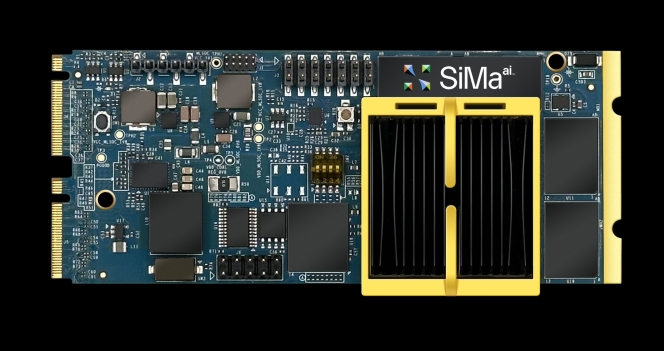
SiMa.ai and Kaynes Semicon have announced a strategic partnership to develop hardware and software for physical AI. The collaboration focuses on localising semiconductor packaging in India to improve supply-chain resilience and market delivery times.
The partners will deliver electronic systems for industries including industrial automation, robotics, automotive, aerospace and defence. Kaynes Semicon will utilise its assembly and testing capabilities to produce reference boards for SiMa.ai’s machine learning system-on-chip (MLSoC) platforms. This hardware is intended to allow system integrators to deploy AI inference technology at the edge and move from proof-of-concept to commercialisation.
The partnership includes the joint delivery of AI solutions for mission-critical requirements in smart vision, surveillance, and autonomous systems. This initiative supports the Atmanirbhar Bharat vision by fostering research, development and custom product innovation for strategic sectors in India.
Krishna Rangasayee, CEO and Founder, SiMa.ai, said, “India’s engineering talent and manufacturing scale are fundamental to our mission of democratising edge machine learning. This partnership with Kaynes Semicon aligns perfectly with SiMa.ai’s commitment to deliver effortless ML for every industry, from defence to industrial automation and beyond. Together, we are setting new benchmarks in making India a global force in physical AI".
Raghu Panicker, CEO, Kaynes Semicon, added, “Collaborating with SiMa.ai marks a significant leap forward for India’s semiconductor ecosystem. By fusing Kaynes’ advanced OSAT and manufacturing capabilities with SiMa.ai’s world-leading AI at the edge, we’re empowering critical industries to innovate at scale. This partnership is not just about technology – it’s about building a trusted supply chain, delivering value for our customers, and shaping the future of electronics manufacturing in India and worldwide”.



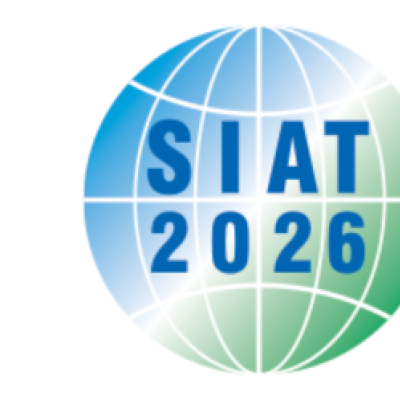



Comments (0)
ADD COMMENT